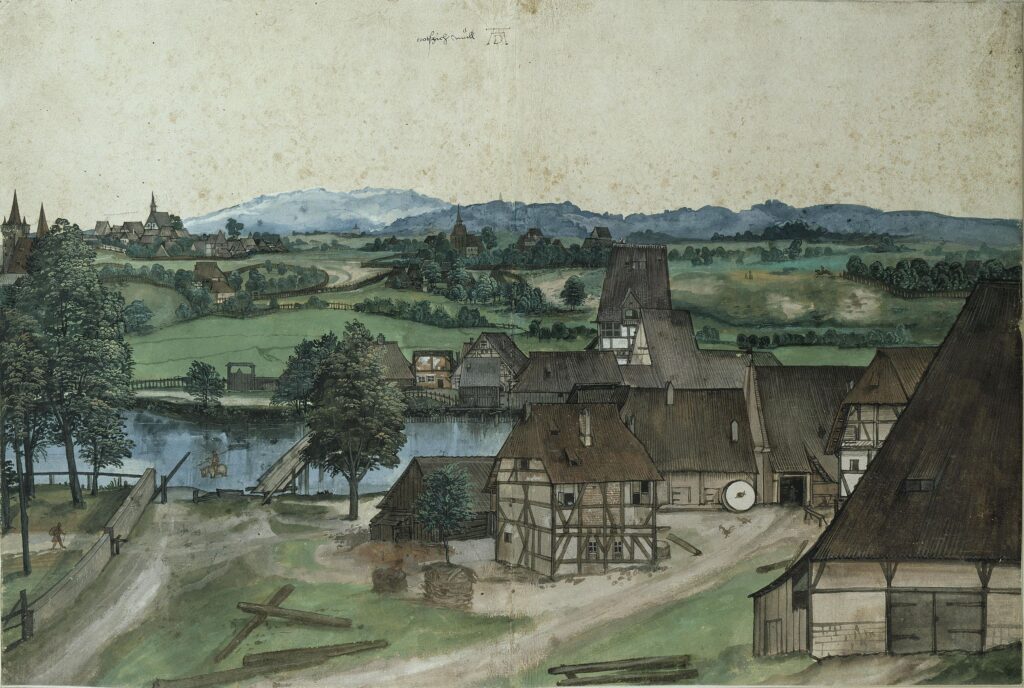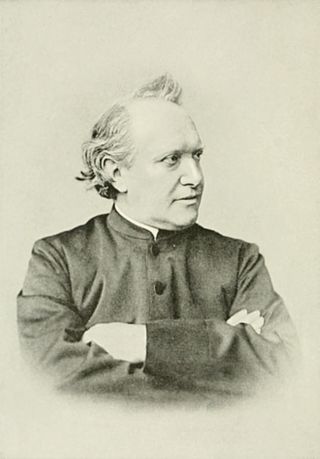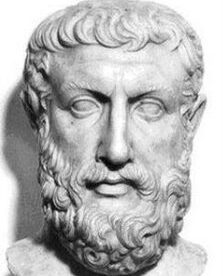
Drahtziehmuehle by Albrecht Dürer
You can read this book for free on Archive.org and here on Parmenidean.is!
Length of book: 354 pages
Among the nations, few have been lied about so ostensibly as the Germans have been. The historiography in the Anglophone which taints the buildup to Luther’s rebellion against the Church is full of distortions and outright lies, which are best unveiled by a careful study of the authentic history of the Late Middle Ages (1350-1500) in what was then the Holy Roman Empire. Thankfully, over a century ago there was one great historian who set out to write a richly detailed book on this very subject—Father Johannes Janssen.

Fr. Johannes Janssen
His many volumes on German history were translated into the English language not long after their publication in German, thus opening up the results of his fruitful studies to an even wider audience. Starting from the Late Middle Ages, his work covers the transition from that era of religious unity and cultural flourishing to the aftermath of the horrendous Thirty Years’ War. This review is merely covering the first volume in his immense series.
In this first book, Father Janssen gives us both a solid examination and a lively retelling of Late Medieval Germany; many topics are covered here, such as art, politics, architecture, literature, inventions, and even economic affairs. In this survey, his work is greatly aided by the insertion of quotations from written works and letters of those who lived during those days.
Among the many developments of that time period, the subject of the printing press is given considerable attention. Of this invention, quite contrary to the lies of secularists and Protestants alike, Father Janssen writes that:1
All the nobler minds of the age were anxious that this new art should not be regarded merely as an instrument for furthering financial profit, but as a fresh means of Christian evangelisation, so that, above all, good should accrue to the Church’s faith, and true wisdom and culture be advanced.
(15)
…[T]he clergy were not content with giving nominal patronage and cooperation to the new art; they also contributed material help by the purchase of its productions.
(17)
Thus, the idea that this “new art” came about as a threat to the clergy and the nobility is a silly anachronism, as this development proliferated primarily as a result of overwhelming support from those two classes. And wisely, the Church wished to control these means of mass information; we see the awful fruits everywhere today of an unrestrained “free” press. Books, newspapers, and now Internet media of all kinds filled with vice and vanity are not only readily available, but are the most popular, to the detriment of Christian morals and the health of society as a whole.
Father Janssen quotes a famous theologian of the era, Jakob Wimpfeling, as having written that:
As the apostles went forth of old…so now the disciples of the sacred art go forth from Germany into all lands, and their printed books become heralds of the Gospel, preachers of truth and wisdom.
(14)
Most true that was—and thanks be to God that Father Janssen provides some extracts from the books of that time, written expressly for that very purpose, so that we today may see this proved for ourselves. One of these books was a 1482 work entitled Summa Johannis, which contains this useful passage on the nature of indulgences:
Only those who are truly contrite merit an indulgence. Moreover, indulgences are not gained at once even by true penitents, but according as they qualify themselves for them by their sincerity, good works, and almsgiving in proportion to their means.
(50)
The teaching given in this centuries old book, not only is as true in our time as it was then, also serves to dispel the ignorant claims that the faithful (for whom this book was written) generally were clueless about the role of indulgences. Additionally, this extract from the contemporary book Explanation of the Articles of the Church provides these words concerning the reasoning as to why the selling of indulgences was tolerated:
The Church does not wish to amass riches, but to work for the honour of God and the salvation of souls. Not all those who help to build churches gain indulgences; only those who, being free from mortal sin and having a firm confidence in the mercy of God, give alms in the spirit of faith and veneration of the saints, in whose honour the churches are built.
(Ibid)
This was the original intention—not raw greed, but to put forward another means of encouraging souls to perform the works of mercy. Along similar lines, Father Janssen later notes in the text that:
The natural result of the general belief in the doctrine of the efficacy of good works was that neither State nor city had to be taxed for the current expenses of schools, hospitals, churches, or the support of the poor, as all these objects were provided for by voluntary contributions.
(184)
How different is this from our day, where we see the exact inverse! Since modern society is enveloped in atheistic materialism, most do not believe in the necessity nor efficacy of good works in order to grow in grace before God. Combine this with the error of individualism and the subsequent breakdown of community in the past several decades, and now it is more apparent why (and how) the Leviathan of the State can justify its exorbitant taxation of the people.
On the subject of education, another area in which the State has unjustly intruded, Father Janssen dedicates many pages of this volume in illustrating the atmosphere of that field and the academia of that age. Notably, he writes that:
Compulsory education was unknown, but from many records preserved in towns and villages we find that the schools were everywhere well attended.
(26)
From further information which the author provides in the text, the fruits of the pedagogic methods of that time are shown to be far superior to our own, particularly when compared to the sorry state of modern state education. It would be wise for Catholics of our day interested in the realm of education to read through the second, third, and fourth chapters of this book, for one will find much inspiration there.
One of the best elements of this book is that Father Janssen dedicates significant time to portraying the contemporary figures who dominated the social and political life of the Empire, such as the artist Albrecht Dürer, the intellectual Rudolph Agricola, and the Emperor Maximilian I.
But even in his portrait of the lower classes, his analysis does not waver. Rather, his research on their state reveals important truths neglected and tarnished by the “black legends” which surround the Middle Ages. Surprisingly to modern readers, the author writes that serfdom in reality became “so general after the close of the sixteenth century” and “was known only in the fifteenth century among the peasants of Pomerania” (311). Of the peasant class in general, he states that:
The peasant of the fifteenth century in most parts of Germany was not an oppressed boor condemned to a life of sordid vulgarity, as after the social revolution of the sixteenth century, but a sturdy, independent being, full of courage and spirit.
(230)
This is seemingly incredible, but quite sensible, especially when considering that a similar process of disenfranchisement and genuine oppression of the poorer classes by the wealthy occurred after the Protestant Revolution in England, as documented by famed Catholic historian Hillaire Belloc in his book The Servile State. I imagine that Father Janssen delves further into the German example of this transformation in his later volumes, but of them I cannot say anything at the moment, for I have not yet read them.
There are many other subjects I could discuss in reference to this book, but I now leave it to my readers to explore the contents of this superb text for themselves. Through its pages, you will find yourself pleasantly immersed in a time and place where Christ was upheld as King. But upon your inevitable return to the present, you will come back refreshed and inspired to labor for the restoration of Christendom and the salvation of your own soul. Unreservedly, I recommend this book to any Catholic interested in finding and reading historical books untainted by the prejudices of our day, especially to those of German descent.
